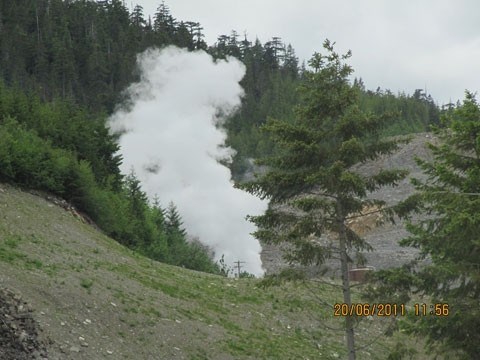What's in a name?
In this case it's the difference between hiring Alpine Paving to look after Whistler's asphalt needs or not.
Previously council had asked for legal counsel on whether or not it had to go with Alpine if it had the lowest bid for paving. The majority of council wanted to use another company because the Resort Municipality of Whistler (RMOW) is involved in a legal action - namely a cease and desist order - with Alpine Paving and its owner Frank Silveri.
But as it turns out legal counsel advised that the cease and desist order is with Whistler Aggregates - also owned by Silveri, and not Alpine Paving.
And so, at the June 21 council meeting, Alpine was awarded the municipal road works contract for 2011.
A declaration offered to RMOW lawyer Donald Lidstone by Silveri states that the Whistler asphalt plant is not operated by Alpine Paving, rather his other company Whistler Aggregates.
It's Whistler Aggregates that owns the plant, has the Licence of Occupation and operates the business.
And that means it's Whistler Aggregates that is continuing to operate the plant even after the municipality ordered it to cease operations last month.
"It is Whistler Aggregates, not the tender bidder Alpine, that is named in the bylaw enforcement Petition that is now before the courts," wrote Lidstone in an email to the mayor and council.
"...we think that on these facts the law of tendering obligates the RMOW to award the contract to the low bidder."
The municipal road works contract is worth about half a million dollars. The asphalt will come from the Squamish plant as the tender stipulated it could not be made in Whistler.
Frustration was evident among those members of council who were concerned about giving business to a company that is in the middle of a legal battle with the municipality.
"If you buffalo me once, shame on you," said Councillor Ted Milner. "If you buffalo me twice, shame on me. And as far as I'm concerned all future tenders should be qualified as to who we want to do business with."
He voted to support the legal opinion but said: "This is a one time only."
Three members of council voted against the recommendation to give Alpine the work.
The mayor said: "I'm not supporting it because it costs the taxpayer money."
He is referring to the fact that there is an additional cost because the asphalt must now be trucked from Squamish. The mayor said he would prefer to have the asphalt from the Whistler plant.
Councillors Eckhard Zeidler and Grant Lamont also voted against the recommendation. Both have consistently voted against the asphalt operations next to the Cheakamus Crossing neighbourhood.
Staff's recommendation to award the work to Alpine was a blow to Cheakamus Crossing resident Dave Sakolinsky.
He is one of the hundreds of residents at the new Cheakamus Crossing neighbourhood frustrated and angry about the nearby asphalt plant, which is continuing to operate despite being ordered by the municipality to stop operations last month.
Sakolinsky said this week that it's time to cut ties with the company.
"He hasn't been operating in good faith with the community," said Sakolinsky, of the operator.
"The time has come that he not be recognized as an integral part of the business community."
Sakolinsky had to close all of his windows Monday and keep his one-year-old daughter inside because of the fumes from the asphalt plant.
Since May 25 there have been 31 complaints to bylaw services by 11 different people about the plant operating.
On two previous occasions, municipal staff has recommended doing business with Alpine Paving and council has sent them back to the drawing board.
At the last meeting council made clear it was uncomfortable doing business with a company continuing to operate in the face of a municipal cease and desist order.
That order was issued in May after pressure from new residents at Cheakamus Crossing who had long been protesting the asphalt plant was operating without proper zoning and had been doing so since the mid 1990s.
Legal proceedings are now underway. A petition to declare the plant in contravention of the zoning bylaw cannot be heard in the B.C. Supreme Court until September.




